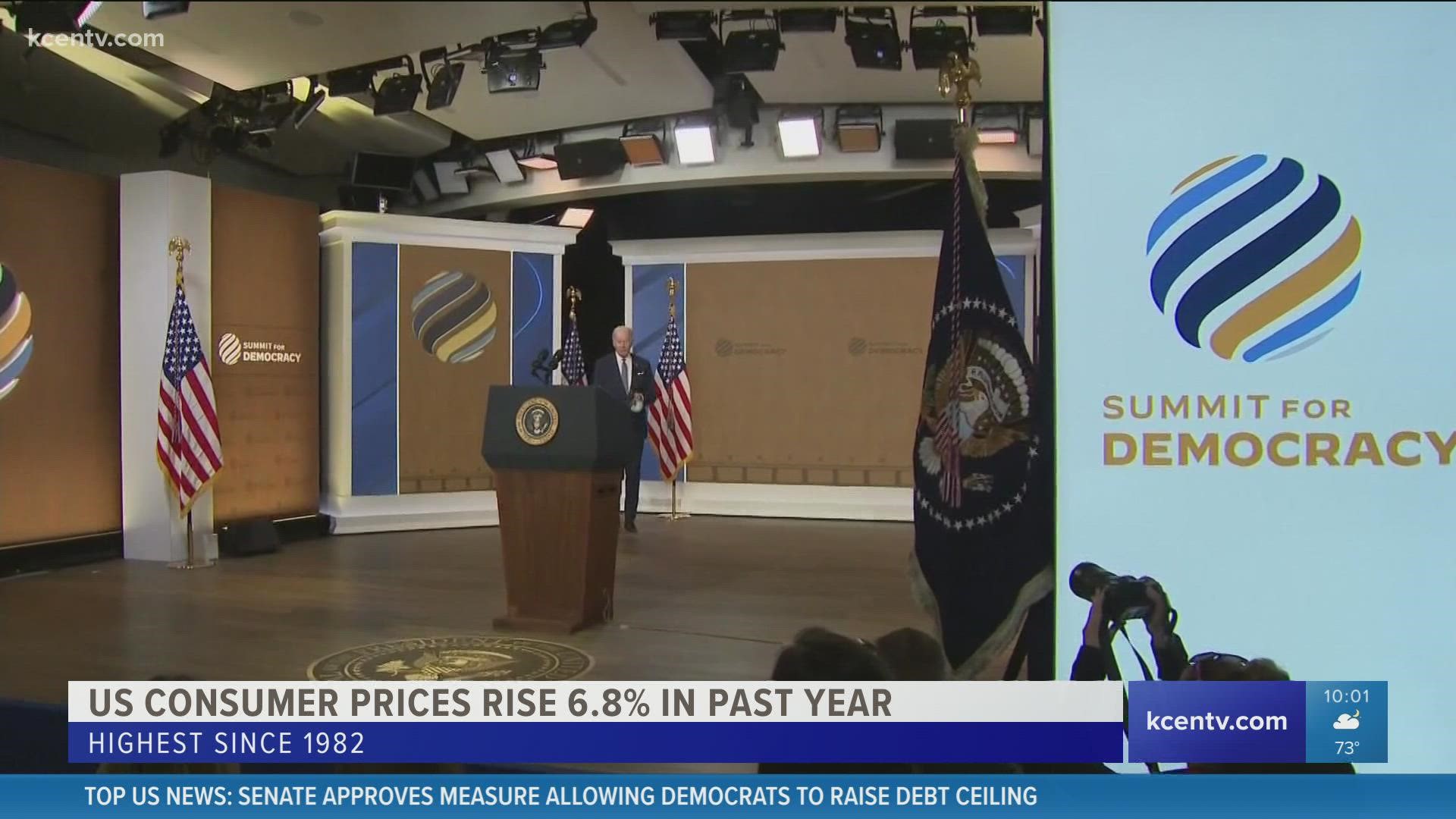WACO, Texas — Costs are on the rise for rent, food, gas, clothing and more. It's all due to inflation, which soared to 6.8% in November compared to the previous year. It's the highest since 1982.
President Biden discussed its effect on families and he said the crisis has hit its speak.
"At the bottom of it all, is COVID. COVID has had a serious impact on the ability to produce a whole lot of necessary products," Biden said.
Economists watch the price of consumer goods to see if the cost of living goes up and that's inflation, which means every dollar you have is worth a little less.
Normally you can expect a little inflation over a long period of time. For example, $1 could buy two movie tickets back in the 1950s. Today, it's closer to $20.
"I would say for the next several months four or five months, we're gonna be in this situation and unfortunately for a lot of families that's very difficult," Ray Perryman said, the president of the Perryman Group an economic research firm in Waco.
Perryman said the soaring inflation can be attributed to several factors. One of them is the pandemic.
At first, there was a lack of spending when people were stuck at home.
"The other thing that happened was because we had to do things to keep small businesses afloat, to keep people with funds, to meet their basic needs, a lot of federal money was put out into the system last year and that money for some folks turned into extra spending power. Other folks had to have it to survive but for a lot of folks that turned into extra spending power," Perryman said.
When the pandemic began to ease people started shopping more. However, Perryman said there was a problem.
"The other half of the equation is the pandemic shut down the ports. It shut down the distribution systems. It shut down a lot of things and shut down a lot of manufacturing around the world and as you try to restart all of that, there's hiccups," Perryman said.
So from the pandemic to high energy costs, supply chain chaos and high consumer demand, this all lead to rising prices.
"So you've got a combination of two different things, both of which are pretty closely related to the pandemic and the end result is you have more people wanting to buy things and less things to buy and that's the classic case of what generates this type of inflation," Perryman said.

